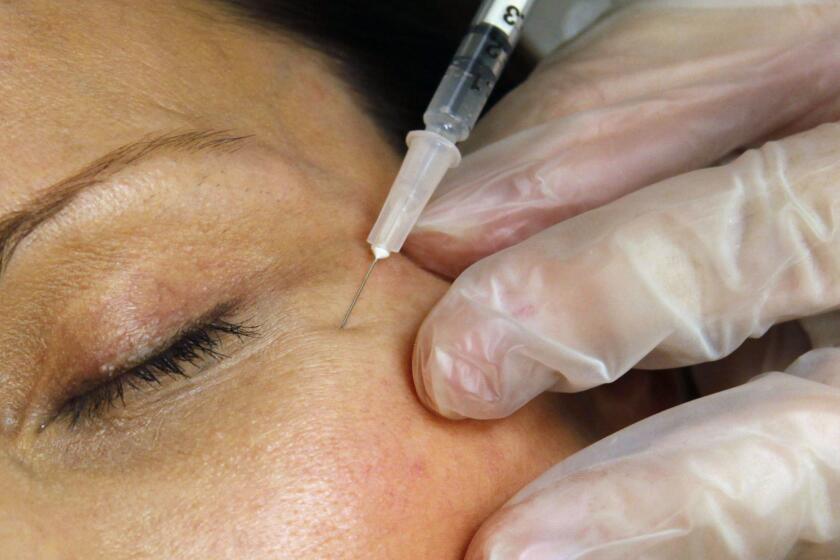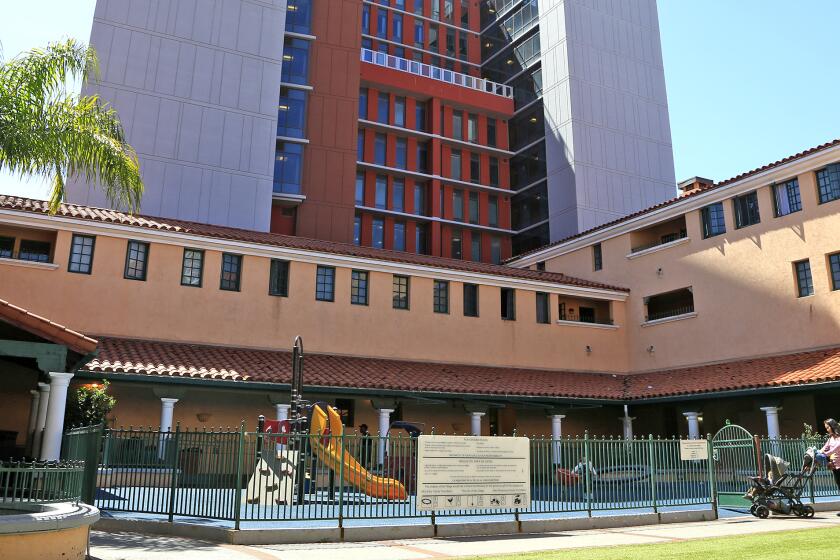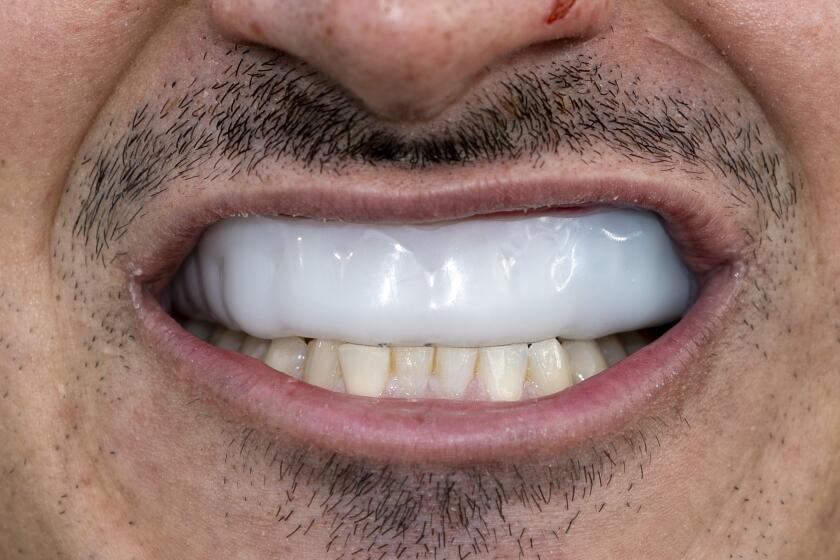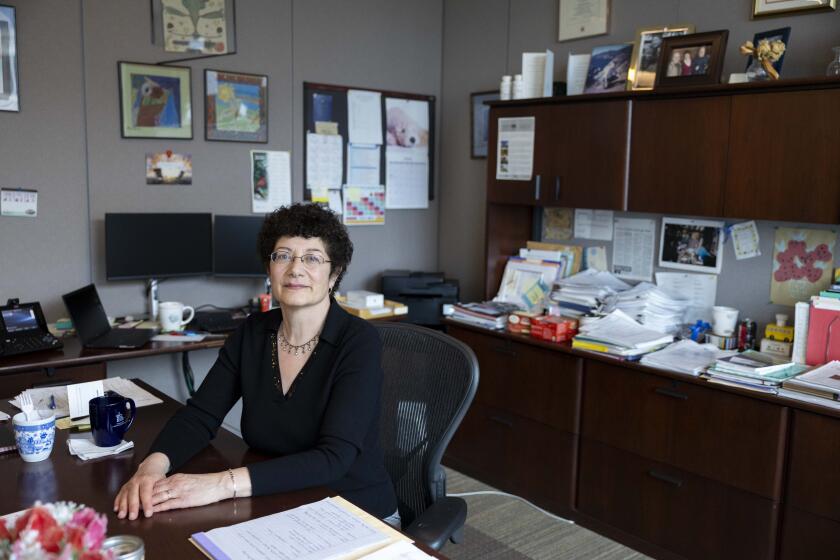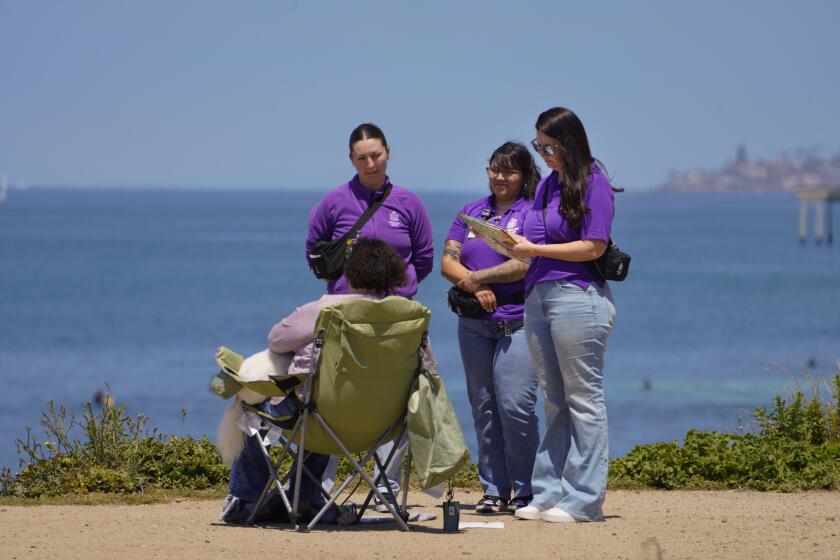Mother sues Rady Children’s for allegedly insensitive transgender care
A Vista mother sued Rady Children’s Hospital in federal court Monday, alleging its workers broke the law when they repeatedly addressed her 14-year-old transgender son, Kyler Prescott, as a girl.
Katharine Prescott said Kyler was extremely distressed after being treated as a female patient, causing his psychiatrist to request that he be released only 24 hours into a 72-hour suicide hold at the hospital.
The teen committed suicide on May 18, 2015 — 41 days after his discharge. The death received international attention after it was featured on the inaugural episode of “I Am Cait,” the documentary television series that chronicled the life of Caitlyn Jenner after the gold-medal-winning decathlete’s gender transition.
Prescott’s suit does not claim that Rady Children’s caused her son’s death, but it does accuse the region’s only children’s hospital of misrepresenting the capabilities of its Gender Management Clinic. Promises of sensitivity to transgender issues were not honored, Prescott said.
“I don’t call it malicious. I think it’s a complete lack of understanding and training. If you say you are trained to take care of transgender youths, you need to be able to do that. And if you’re unable to, it may have dire consequences,” Prescott said.
She seeks unspecified damages from the hospital.
Rady Children’s released a brief statement after the lawsuit was filed: “At Rady Children’s Hospital San Diego, our top priority is providing the absolute highest level of care to our patients and families. While it is the policy of Rady Children’s not to comment on pending legal matters, any allegations of wrongdoing, including discrimination, are investigated thoroughly and followed up on.”
The series of events in 2015 that led to the lawsuit were preceded by several years of adjustment for the Prescott family.
According to the lawsuit, Kyler began identifying himself as a boy at age 10, choosing more masculine clothing, expressing “a desire to become more muscular” and beginning “to socialize almost exclusively with other boys.”
At 12, he “began engaging in self-harming behaviors,” and then declared that he was a boy the next year. The onset of puberty brought increasing distress, and therapy was followed with hormone treatment in 2014 to delay puberty’s effects.
The suit said Kyler was “bullied and harassed about his gender identity by his peers and teachers.” This discrimination, Prescott said, made her son extremely sensitive to being address with the wrong pronouns.
She said when the staff at Rady Children’s Hospital began treating her son as a girl, she objected over and over, escalating the matter to the charge nurse responsible for the ward where Kyle was admitted.
“Instead of handling the complaint, the charge nurse blocked my number so I was not able to call in to the floor,” Prescott said.
Kathy Moehlig, executive director of the San Diego-based group TransFamily Support Services, said there is a general sense among the 150 or so families that have worked with her organization in the past few years that health care encounters will be difficult.
“Everyone needs to be educated to understand something that’s new to them. If you are working with youths in any capacity, it’s your responsibility to understand gender variance,” she said.
paul.sisson@sduniontribune.com
(619) 293-1850
Get Essential San Diego, weekday mornings
Get top headlines from the Union-Tribune in your inbox weekday mornings, including top news, local, sports, business, entertainment and opinion.
You may occasionally receive promotional content from the San Diego Union-Tribune.

